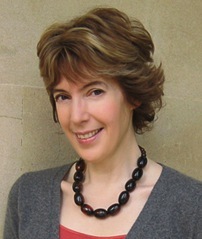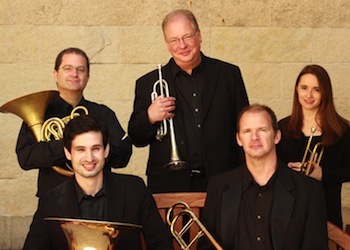Focus on festivals: School of Music’s new approach invites more interaction
Breaking with tradition, the UW-Madison School of Music will present an array of music festivals this year, rather than individual guest artists scattered throughout the fall and spring semesters.
The shift is part of a new effort this academic year to draw community audiences, students and faculty to a wide range of festivals lasting several days and featuring more than just performances. Master classes, workshops and lectures are among the offerings on tap — with the goal of deeper learning and broader community engagement with the School of Music.
Festivals include one devoted entirely to brass music, scheduled for Oct. 8-13; a jazz festival in early December; and two featuring music of contemporary composers: Cecilia McDowall (Feb. 19-23) and George Crumb (March 22-23). The festivals are funded by either the Vilas Trust or the Anonymous Fund.
Another festival in tribute to French baroque composer Jean-Philippe Rameau was added over the summer, with events occurring in different months but all linked by the composer’s music.
Three headline concerts are ticketed, but all other events are free and open to the public. Students of all ages are encouraged to attend the wide variety of master classes, colloquia, composition workshops and open rehearsals.

Cecilia McDowall
Cecilia McDowall, a British composer, will mark her first residency in the U.S. with her appearance at UW–Madison. The school will feature her music at two concerts in February, including a U.S. premiere of “Seventy Degrees Below Zero” with the UW Symphony Orchestra. The Scott Polar Research Institute commissioned the work as a tribute to British Royal Navy officer Robert Falcon Scott, who vied to discover the South Pole in 1910 and ultimately lost his life.
Festival organizer John Aley, professor of trumpet, discovered McDowall’s music while researching new trumpet music several years ago.
“(Piano professor) Martha Fischer and I gave the North American premiere of Cecilia McDowall’s work for trumpet and piano, ‘Framed,’ based on a series of seven works of arts in London’s Tate Gallery,” Aley says. “It was a wonderful experience. She wrote an incredibly varied piece, representing a wide range of compositional styles.
“I happened to come back to her website not long after seeing a news item about the UW–Madison IceCube project and the dots connected to her piece recently commissioned by the Scott Polar Research Institute.”
When the opportunity to design a grant-funded festival arose at the School of Music, Aley jumped at the chance. Taking advantage of the polar science connection, the festival will feature an educational multimedia presentation by IceCube scientist Michael DuVernois, who will describe the project and elaborate on the history of polar research.

The Wisconsin Brass Quintet, a faculty ensemble at the School of Music, will perform during the “Celebrate Brass!” festival.
Photo: School of Music
Aley is also organizing “Celebrate Brass!,” a six-day festival in October offering four concerts, master classes on brass instruments, and colloquia. “This program will take the audience through a gamut of emotions and sonic delights,” Aley says.
The two other grant-funded festivals include the Madison Schools/UW-Madison Jazz Fest, Dec. 4-6, with New York-based jazz trumpeter Ingrid Jensen, and a festival on March 22-23 honoring legendary composer George Crumb, winner of Grammy and Pulitzer Prizes.
The Rameau festival, which will begin Nov. 14, was conceived by musicology professor Charles Dill, a Rameau expert who spent considerable time in France last year during the 250th anniversary of the composer’s death.
Tags: arts, events, School of Music
